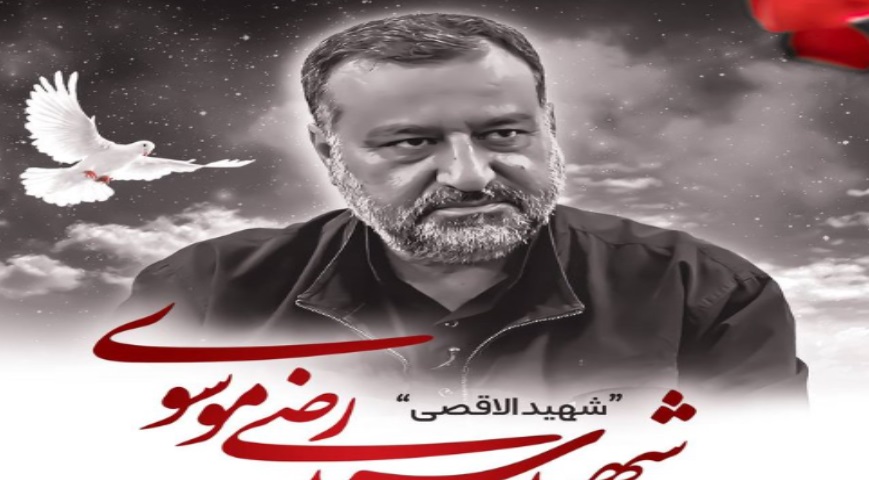Israel has sent a message; now a big decision awaits
It is likely that Monday's assassination, which Iran attributes to Israel, was meant to send Tehran the message that Israel's patience is running out.
Yoav Limor
Israel Hayom
Dec 26, 2023
Read more at: https://www.onmanorama.com/news/world/2023/12/26/iran-revolutionary-guards-senior-adviser-killed-israeli-airstrike-in-syria.html
Read more at: https://www.onmanorama.com/news/world/2023/12/26/iran-revolutionary-guards-senior-adviser-killed-israeli-airstrike-in-syria.html
 Top Iranian Revolutionary Guards's Commander Sayyad Razi Mousavi Killed
Top Iranian Revolutionary Guards's Commander Sayyad Razi Mousavi Killed
The importance of eliminating Revolutionary Guards's General Sayyed Razi Mousavi goes beyond the importance of the man himself. It shows that Israel, which has been blamed for the assassination, has decided to step up its struggle, not only against Iran's proxies in the region, but against Iran itself.
Mousavi was a little more than a mid-level commander in the Revolutionary Guards. He was involved in smuggling weapons from Iran, manufacturing weapons in Syria, and transferring funds to Hezbollah and the Shiite militias operating under Iran's auspices in Syria. His rank (equivalent to brigadier general in Israel) and role were less about his importance and power than with his proximity to Quds Force power centers – especially the most mythological among them, the former Quds Force chief Qassem Soleimani, who was eliminated in a January 2020 American strike in Baghdad.
Israel has been blamed for taking out various Iranian figures in Syria. Sometimes these were deliberate assassinations meant to exact a price from Iran for its activity in the region; sometimes they were a byproduct of attacking weapons warehouses or infrastructure that also housed Iranian civilians or operatives. From reports coming out of Damascus Monday, this seems to have been a targeted assassination whose dual purpose was both to get rid of the man himself and send a deterrent message to Tehran.
Overt ambiguity
Ever since the October 7 attack, Iran has significantly increased its aggression against Israel. It assists Hamas in various ways – mainly financially, but also in frequent meetings with the organization's external leadership – and it is an active partner in the rocket launches Hezbollah is carrying out against Israel from Lebanon.
Iran's proxies have also operated on several occasions from Syria, and parallel groups have arrived from Iraq to reinforce activity on the Syria-Lebanon border. Another active arena is Yemen, where the Houthis rely on Iranian weapons and guidance to act against Israel by firing cruise missiles and ballistic missiles, and by attempting to strike Israeli vessels in the southern Red Sea.
In response, Israel has been careful to remain ambiguous regarding its actions against Iran, so as not to be dragged into a direct confrontation. This has presumably been why there have been strikes against several targets related to smuggling and weapons manufacturing in Syria, and an apparent cyberattack last week that shut down most gas stations in Iran.
That attack was attributed to Israel, even though an organization called "Predatory Sparrow" claimed responsibility.
While Israel has once again avoided taking responsibility for the assassination, no one in the region doubts who is responsible for it. This matter also requires reexamination: Until now Israel has operated within the CBM framework (the Campaign Between Wars) in an attempt to keep hostilities below the threshold of war. In an era where overt war is being waged in the north and south and where Iran is using many tools at its disposal to challenge Israel, we must examine whether the time has come to remove some of that ambiguity in order to enhance deterrence.
A decision is required
Israel and Iran have been fighting each other in various ways for almost three decades. Until the events of Oct. 7, Iran bled much more than Israel in every possible arena. Hamas' attack and the regional conflict that developed in its wake changed the picture. Today it is Israel that is bleeding, among other things, due to overt encouragement and assistance from Iran, while Iran itself pays a negligible price on its own soil.
It is likely that Monday's assassination, which Iran attributes to Israel, was meant to send Tehran the message that Israel's patience is running out. It is not certain that the message was fully received; in fact, the strike may have Iran ramp up its activity and also try to exact a price from Israelis and Jews worldwide. This is a constant Iranian effort taking place across dozens of locations worldwide, which has so far been thwarted thanks to impressive activity by Mossad and various security services.
Therefore, it seems Israel will soon need to have a real discussion: whether to openly strike Iran on its territory. This is a complex decision with costs in every possible aspect – security, political, economic, and regional – but it also has real potential to deter Tehran, or at least cause it to deal more with defense and less with offense.
No comments:
Post a Comment